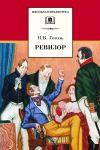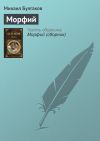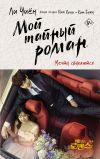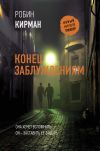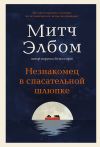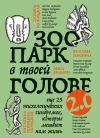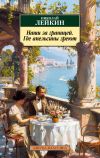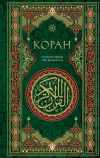Текст книги "Послания любви. 365 писем Ошо"

Автор книги: Бхагаван Раджниш (Ошо)
Жанр: Зарубежная эзотерическая и религиозная литература, Религия
Возрастные ограничения: +16
сообщить о неприемлемом содержимом
Текущая страница: 6 (всего у книги 19 страниц) [доступный отрывок для чтения: 6 страниц]
One day one man boasted in the bar
that he was a man of iron will,
and now he would prove it
by not touching wine again in his life.
But not even that day could pass by.
In the evening he came to the bar
and said loudly for all to hear –
I am stronger than my willpower.
I fought the whole day and finally conquered
my damn willpower!
A double scotch, please!
198. Love.
The way of meditation is above the self;
its base is surrendering.
Surrender the self to your own no-self;
be as if you are not.
Oh, the benediction
when one just leaves everything to the no-self!
Buddha called this phenomenon anatma or anatta
(no-selfhood).
One must turn oneself into a puppet
in the hands of the no-self,
and then everything begins to flow naturally
and spontaneously
just like a river flowing to the sea
or like a cloud wandering in the sky.
Lao Tzu says this is doing by non-doing.
One ceases to be one’s own master
and becomes an instrument of the unknown –
and what nonsense it is to be one’s own master
because there is no one to be so!
Do not search and you will continue to believe in it.
Search and it is nowhere to be found.
The self exists only in ignorance.
It is ignorance.
In knowing there is no self
because there is no knower.
Then knowing is enough unto itself.
199. Love.
There is conflict in the mind – always,
because the mind cannot exist without the conflict.
It gets strengthened through conflict;
even warring against conflict is conflict
and struggling to go beyond the mind is mind.
See this deeply and immediately
without motive,
just as if you have come across a snake in the street
– and the jump.
Then it is not that you jump
but – the jump.
The jump happens spontaneously,
without effort and without conflict.
When this happens there is no-mind
and no-mind is the door to the divine.
200. Love.
In meditation, enjoy doing nothing.
Be in a state of perfectly quiet passivity –
then you are in harmony with the world.
The thought-forms dissolve automatically
because they cannot exist with total passivity:
they are forms of an activity-addicted mind,
and with them dissolves the ego –
because it cannot exist without thought-forms.
The ego is nothing but a whirlpool center
of constantly revolving thought-forms.
Remain in passivity,
that is, in the state of absolute doing-nothingness,
and meditation deepens to the depths where there is no meditator.
And remember that only when there is no meditator
has meditation really come into being.
If you are then there is no meditation,
and when there is meditation you are not.
201. Love.
It is tragic but true that few people ever
possess their souls.
They possess everything except themselves,
and then naturally they just become a thing
among their other things.
The possessor becomes the possessed.
Nothing is more rare in any man, says Emerson,
than an act of his own.
But this is just what can be expected
because no one is their own,
no one is themselves.
Most people are other people.
They are not living
but only acting roles given to them by others.
Their thoughts are someone else’s opinions
and their faces are just masks.
They are faceless.
They have no authentic being at all.
Their lives, a mimicry –
and their passions, a quotation.
Break this vicious circle otherwise you will never be.
Break this through meditation –
and it cannot be broken by anything else
because through mind it cannot be broken,
and except for meditation, all else is mind.
Mind is the prison,
meditation, the door.
And the only door.
202. Love.
Only God is –
that is why it is so difficult to find him.
And God is everywhere –
that is why he seems to be nowhere.
And the seeker is the sought –
that is why all seeking is so futile.
Stop and see.
But the mind is running constantly.
Do not be, and see.
But the mind is trying to be continuously.
Says Auden:
For the garden is the only place there is, but you will not find it,
until you have looked for it everywhere
and found nowhere that is not a desert.
The miracle is the only thing that happens,
but to you it will not be apparent,
until all events have been studied
and nothing happens that you cannot explain.
And life is the destiny you are bound to refuse
until you have consented to die.
Stop and see.
Do not be, and see.
203. Love.
Live in the body intimately and deeply.
Feel the body more and let the body feel more.
It is astonishing how many people
are almost completely unaware of themselves physically.
The body is suppressed and denied life too much,
that is why it is just a dead weight and not a living joy.
That is why I insist: go back into the body
and regain the wonderful joy in its movements,
sheer movements.
Make it a meditation and you will be enriched
beyond comprehension.
204. Love.
John Burroughs remembers:
One day my boy killed what an old hunter told him
was a mock duck.
It looked like a duck,
it acted like a duck,
but when it was placed on the table –
it mocked us!
Remember to make a clear-cut distinction
between your self and your mock-selves – the masks,
otherwise in the end they will all mock you!
205. Love.
Man is strange, very strange,
because he begins by deceiving others
and ends with deceiving himself.
A fakir was walking down the village street
deep in thought
when some urchins began to throw stones at him.
He was taken by surprise,
and besides he was not a big man.
Don’t do that, he said, and I will tell you
something of interest to you.
All right, what is it? But no philosophy.
The king is giving a free banquet to all comers –
he simply lied to them.
The children ran off towards the king’s palace
as the fakir warmed to his theme –
the delicacies and delights of the entertainment…
He looked up and saw them
disappearing into the distance,
and then suddenly he tucked up his robes
and started to sprint after them.
I had better go and see, he panted to himself,
because it might be true after all.
206. Love.
To be religious is to be a yea-sayer:
yes to everything –
yes to life and yes to death,
yes to light and yes to darkness.
Total acceptance is religion.
Says Nicolas De Cusa: Yes God! Yes God!
Yes, yes and always yes.
Say yes – and feel it,
and you have entered the temple of the divine.
Say no and you yourself have closed the doors –
or closed yourself to the divine.
No is suicidal, no is poisonous –
know this and be a yea-sayer.
Let your heart say yes with every beat.
Breathe yes in and out
and you will feel the divine all around you
within and without.
He is always present but he cannot enter through a no sign.
He cannot trespass on you.
With a no you are an ego
but with a yes you are just egolessness.
Ego is a Leibnizian monad without any doors or windows,
and egolessness is the gate.
Be a gate – the divine is waiting to enter you from eternity.
207. Love.
Begin to live positively – that is,
with positive emotions.
To be negative is to be self-destructive
and ultimately suicidal.
But ordinarily the mind works that way
because it is only an instrument for safety and security;
it detects only death and not life.
So to be completely positive is to transcend mind.
Some fakir was asked to talk to a group
about the negative nature of the mind.
He tacked up on the wall a large sheet of
perfectly white paper.
He made a black spot in the paper with a pencil.
Then he asked each man to say what he saw.
Each man replied: A black spot.
The fakir then said: Yes, there is a little black spot.
But not one of you saw the big expanse of white paper –
and that is the point of my speech.
208. Love.
The forms of existence are finite – all forms.
Really, to have a form means to be finite.
But existence is infinite
because only the formless can be infinite,
and existence is formlessness,
that is why it can take all forms.
But to take form in any way is to allow death in
because form is a death sentence,
whilst existence itself is eternal life.
Do not be identified with the form:
this identification creates the fear of death
– in fact, all fear.
Remember the formless
and you will know immortality
because you will be that – then.
209. Love.
One’s attitude is everything.
Negative attitudes negate life –
they are good for dying but not good for living.
Life needs positive attitudes;
life feeds on them
because they make you
not only happy but creative also.
Once there lived an old woman,
but the older she became the younger she felt –
because youthfulness has nothing to do with age,
it is an attitude,
and with age and its richness
one can really be younger than the young.
The old woman was so cheerful and creative
that everyone wondered at her.
But you must have some clouds in your life,
said a visitor.
Clouds? she replied. Why, of course:
if there were no clouds
where would the blessed showers come from?
In the presence of trouble –
and there are troubles in life –
the positive mind grows wings
but others buy crutches.
Grow wings, and do not buy crutches.
210. Love.
There is no security in life
because life cannot exist except as insecurity –
that is why the more secure one is
the less alive one becomes.
Death is complete security.
So never be in search of security
because you are searching for death.
To live totally and in ecstasy never demands security.
Accept insecurity blissfully
and when you accept it
then you will know that it has a beauty of its own.
Mulla Nasruddin’s tomb
was fronted by an immense wooden door,
barred and padlocked.
Nobody could get into it – at least through the door.
As his last joke
the Mulla decreed that the tomb
should have no walls around it…
What the Mulla did with his tomb
everybody is doing with his life –
and unknowingly!
If you also want to do it –
at least do it knowingly,
because I know that you cannot do it knowingly!
Not only you cannot, but no one can do it,
because no one can knowingly be stupid.
211. Love.
The universe cares for little but play.
But man in his life does hardly anything but work,
and because of this everything has become upside down.
Hence the agony.
The law, the tao of the universe, is play – leela –
and the law of human reason is work
because reason cannot think beyond utility.
But existence exists beyond utility.
Meditate on this gap and you will find the bridge –
and the bridge is necessary
because you cannot exist without work,
and to exist only for work is unbearable and unlivable.
The meditative man works
so that he can play more intensely –
the reason for his work is play.
And the unmeditative man plays so that he can work more efficiently –
the reason for his play is work.
212. Love.
Life does not need comfort when it can be offered meaning
nor pleasure when it can be shown purpose,
because in the total intensity of intentional living
is the fruition of the seed of consciousness.
And consciousness without the self is the goal.
Consciousness without the center –
and you have reached.
Consciousness without ego is nirvana:
or you may call it God or whatsoever you like.
Know that everyone is seeking this state of being,
but unless the seeker is lost, this state of being cannot be found –
and the seeker can only be lost
in the fire of total intensity of living.
So live totally.
And live in the moment
and moment to moment,
because there is no other way to live totally,
and no other way to dissolve the center, the self, the ego.
213. Love.
The secret of meditation is the art of unlearning.
Mind is learning;
meditation is unlearning.
That is – die constantly to your experience.
Don’t let it imprison you.
Experience becomes a dead weight
in the living and flowing, riverlike consciousness.
Live in the moment unburdened of the past,
flow in the moment unblocked by the mind,
and you will be in meditation.
Know well that it is innocence that is full
and experience that is empty –
although the surface appearance is quite the contrary.
It is innocence that knows
and experience that knows not –
though innocence never claims
and experience is nothing but claims and claims and claims!
And that is why I say:
innocence is meditation because it opens the doors of the unknown.
So learn how to unlearn.
So learn how to be beyond the mind.
Do not cling to the known
and the master key will be in your hands.
Be open and vulnerable,
always living and flowing into the unknown,
and you will be in meditation –
you will be meditation.
214. Love.
Three men made their way to the circle of a Sufi
seeking admission to his teachings.
Almost at once one of them
detached himself from the group,
angered by the erratic behavior of the master.
On the master’s instructions
the second was told by a disciple
that the sage was a fraud.
He withdrew soon afterwards.
The third was allowed to talk
but was offered no teaching for so
long that he lost patience and left the circle.
When they had all gone away
the teacher instructed his circle thus:
The first man was an illustration of the principle:
Do not judge fundamental things through seeing.
The second was an illustration of the injunction,
Do not judge things of deep importance through hearing.
The third was an example of the dictum:
Never judge by speech or the lack of it.
When asked by a disciple
why the applicants could not have been
instructed in this matter
the master retorted: I am here to give real knowledge,
not to teach what people pretend
that they have already learned at their mother’s knees.
215. Love.
Always remember the golden rule: One step at a time.
A good natured woman was often asked for food by tramps.
She finally decided to refuse them;
it was becoming too burdensome.
But shortly after she made her resolution
one young man stopped
and asked her for a little piece of thread.
She noticed that his pants were badly ripped,
that he had a needle,
and she realized he could not get work
with his pants in their present condition,
so she gave him the thread.
The fellow took the thread,
went down the road and sat under a tree
for a few minutes,
then came back to the house.
He told the woman he could not repair the pants
unless he had a piece of cloth for a patch.
She gave him a small piece of material.
About an hour later the young fellow
came again to the house
and said: Madam, these pants are beyond repair.
It would be very good of you
if you could give me a pair of your husband’s old pants.
So she gave him a pair of old pants
and smiled at his cleverness.
The young man went behind the barn
and changed into the pants given to him.
Then he returned to the house and told the woman
that the pants were sort of big around the waist,
but if she could give him some food
he was sure they would fit perfectly.
This time the woman burst out laughing
and gave him a big dinner.
And all because he took one step at a time.
216. Love.
Knowledge is accumulation,
that is why knowledge is always dead,
while learning is moment to moment
because learning is not accumulation but movement.
So do not be dead with knowledge
but move with learning,
only then will you be alive.
Do not be tethered to experience –
experience is slavery.
Always transcend that which has been
so that you are ready to receive the new.
Ecstasy is always with the new,
with the fresh, with the young,
with the discontinuous –
and to be always in the discontinuous
is to be in the divine.
217. Love.
If one is aware of the present moment
then one also becomes aware of the fact that
there is no me inside.
The me is my past,
the me is the dead past.
The me is not my life because it is not living.
The ego can exist only in the past
or in the future –
which is nothing but a projection of the past.
That is why awareness, moment to moment awareness,
leads to egolessness –
because the ego cannot exist in the present
and because awareness cannot exist except
in the present.
So they cannot exist simultaneously.
Ego is unawareness
and awareness is egolessness.
218. Love.
I live without planning,
and I also feel that this is the only way to be alive at all.
In fact I live a wild life,
absolutely unplanned,
not knowing anything about the future –
not even about the next moment.
Today is enough for me –
really more than enough!
The moment that is present is the only living moment –
the past is dead in the sense that it is no more
and the future is also dead
in the sense that it is not yet born.
And so to be concerned with the past is to be dead
and to be concerned with the future is also to be dead.
The only way to be alive is to be here and now –
in the moment and totally in it.
Living moment to moment I have found that ecstasy and bliss
which is not of this world at all.
The single moment lived totally transcends time itself.
It becomes the gap between two moments of time,
and if one can be in this gap
then one is beyond death
because time is death
and timelessness is life.
Life is not something fixed and finished,
life is living what is,
a process, just riverlike,
flowing always into the unknown,
from the shores of the known to the shores
of the unknown.
219. Love.
Anger, violence, greed or envy
cannot be overcome by the cultivation of their opposites,
because anger itself will cultivate its opposite
and violence will be present in its cultivated non-violence.
So always be aware
of the hypnotic spell of the opposite:
it never solves any problem
because it is beating around the bush.
Do not fall into the trap of the opposite
but understand anger, violence or greed
or anything else
directly.
To seek the opposite is a way of escape.
To seek the opposite is cowardice.
Live with your mind as it is.
Do not try to change it.
Be brave and face it and understand it.
When the light of awareness falls on anger or
greed or envy
there is change.
Awareness acts as a catalytic agent –
and then anger does not change into its opposite,
it is not that violence becomes non-violence,
but there is no-anger,
there is no-violence.
And when there is no-violence there is no-mind,
and an altogether different dimension opens its door:
the dimension of the spontaneous,
the dimension of the divine.
220. Love.
Moment to moment life passes into death,
because it is death.
Covered, it appears as life,
uncovered it is death.
Always remember this fact.
This is silent meditation.
And when this remembering even penetrates
your dreams
you will have a new door opened unto you.
In fact through it you will be altogether new,
and ultimately reborn.
Remembering death gives a new dimension
to consciousness
because to remember death is not natural.
On the contrary nature has arranged
that one should not be aware of it
because the moment one transcends death
one transcends nature also.
And one cannot transcend death
unless one is totally aware of the fact.
So be totally aware of death.
And it is happening each moment within and without.
It is present everywhere.
And because it is so obvious one becomes absent to it.
Remember – and deepen the consciousness,
because as the awareness of death goes deeper
one becomes capable of feeling that which is deathless.
Really, death is the door –
the opening to the deathless.
But be conscious of it.
Be conscious and transcend.
Be conscious and know that which is before birth and after death.
And – you are that.
221. Love.
Be a stranger to yourself.
See life as a river flowing through time.
Stand on the bank, neither curious nor concerned.
Glance or gaze at the driftwood of your past
floating in your memory –
just like the incidents one reads about in the paper.
Detached and indifferent remember that nothing matters.
Only exist –
and the explosion.
222. Love.
Always be positive, in each and every situation –
that helps meditative awareness very much.
Negative attitudes negate the whole effort.
Diogenes was looking for an honest man in New Delhi.
Any luck? asked a wayfarer.
Oh, pretty fair, sir, replied Diogenes.
I still have my lantern.
223. Love.
Philosophy cannot cure you of questions –
on the contrary, it can give you more.
I heard this at a chemist’s shop:
Did the patent medicine you purchased cure your aunt?
Good heavens, no.
On reading the wrapper around the bottle
she got two more diseases.
224. Love.
Mulla Nasruddin was carrying home some liver
which he had just bought.
In the other hand he held a recipe for liver pie
which a friend had given him.
Suddenly a buzzard swooped down and carried off the liver.
You fool! shouted Nasruddin.
Having the meat is all very well,
but what will you do without the recipe?
225. Love.
Man can only know what God is not.
To know what God is, is impossible
because that’s where the realm of being begins.
You cannot know God but you can be,
and in that dimension is the only knowing.
But that knowing
is altogether different from all our other knowing
because in that knowing there is no knower
and no known,
but only knowing.
That is why in that dimension knowing and being
are the same.
There is even no knowledge.
because knowledge is dead and therefore a thing.
Moreover, knowledge is always of the past,
and God is never in the past
or in the future.
God is now, always now;
and here, and always here.
Close your eyes and see.
Then open your eyes and see.
Then neither close your eyes nor open your eyes and see.
226. Love.
There was once a man
who was obsessed with the idea
that there was a secret knower in those
who achieved success.
To discover this secret
he devoted years to study and research:
ancient masonry, philosophy, astrology, psychology,
salesmanship, religious beliefs,
the various cults that have had their rise and fall.
All these he studied long and diligently,
but no conclusion was visible.
He struggled and struggled
but still there was no conclusion.
And then instead of success in his search
for the secret of success
came death – and as death approached him
he realized the goal of his whole life’s efforts,
and finally he gave his conclusion to those
who were near him.
It came in two short words: I will.
227. Love.
Do not believe in thinking
because that is the greatest of all superstitions –
but well hidden
because it pretends to be anti-superstitious!
Thinking is nothing but dust in a blind mind
because you cannot think that which is not known –
and you need not think that which is already known.
The encounter is always with the unknown.
The unknown is everywhere,
within and without,
and thinking is always in the known and of the known.
You can never be in contact with the unknown through the known
so throw the known and be in contact with the unknown.
And this is what I call meditation.
228. Love.
Man goes on dreaming and desiring
but basically remains where he is,
and in the end
nothing but the ashes of his dreams and desires
are in his hands –
and of course there are tears in his eyes.
Panchatantra has a beautiful story:
In a certain town lived a Brahmin named Seedy
who got some barley meal by begging,
ate a portion,
and filled a jar with the remainder.
This jar he hung on a peg one night,
placed his cot beneath it
and fixing his gaze on the jar
fell into a hypnotic reverie.
Well, here is a jar of barley meal, he thought.
Now if a famine comes
I will get a hundred rupees for it.
With that sum I will get two she-goats:
every six months they will bear two more she-goats.
After goats, cows.
When the cows calve I will sell the calves.
After cows, buffaloes.
After buffaloes, mares.
From the mares I shall get plenty of horses.
The sale of these will mean plenty of gold.
The gold will buy a great house with an inner court.
Then someone will come to my house
and offer his lovely daughter with a dowry.
She will bear a son whom I shall call Moonlord.
When he is old enough to ride on my knee I will take a book,
sit on the stable roof and think.
Just then Moonlord will see me,
will jump from his mother’s lap
in his eagerness to ride on my knee
and will go too near the horses.
Then I shall get angry and tell my wife to take the boy
but she will be too busy with her chores
and will not pay attention to what I say.
Then I will get up and kick her!
Being sunk in his hypnotic dream
he let fly such a kick that he smashed the jar
and the barley meal it contained made him white all over.
229. Love.
Go on discarding: not this, not this (neti, neti),
and ultimately when nothing remains to be discarded –
then the explosion happens.
Do not cling to anything, to any thought.
Go on and on until the nothingness.
I have heard about a little boy, Toyo, and his meditations.
He was only twelve years old
but he wanted to be given something to ponder on,
to meditate on,
so one evening he went to Mokurai, the Zen master,
struck the gong softly to announce his presence,
and sat before the master in respectful silence.
Finally the master said: Toyo, show me the sound of two hands.
Toyo clapped his hands.
Good, said the master.
Now show me the sound of one hand clapping.
Toyo was silent.
Finally he bowed and left to meditate on the problem.
The next night he returned and struck the gong
with one palm.
That is not right, said the master.
The next night Toyo returned and played geisha music with one hand.
That is not right, said the master.
Again and again Toyo returned with some answer
but the master said again and again, That is not right.
For nights Toyo tried new sounds
but each and every answer was rejected.
The question itself was absurd so no answer could be right.
When Toyo came on the eleventh night,
before he said anything the master said:
That is still not right!
– then he stopped coming to the master.
For a year he thought of every possible sound
and discarded them all,
and when there was nothing left to be discarded any more
he exploded into enlightenment.
When he was no more, he returned to the master
and without striking the gong he sat down and bowed.
He was not saying anything
and there was silence.
Then the master said: So you have heard the sound without sound!
230. Love.
Thought is divisive,
it divides ad infinitum,
so thought can never come to the total, to the whole.
And the whole is while the parts are not –
or they are only for the mind –
and if there is no mind then there are no parts.
With the mind and because of the mind
the one becomes many – or appears so;
and with the mind and through the mind,
to conceive the one is impossible.
Of course it can think about the one,
but that one is nothing but a putting together of all the parts,
and that one is quite different from the one which is.
The one which is conceptualized by the mind
is just a mathematical construct:
it is not a living whole,
it is not organic,
and unless one experiences the cosmos as
an organic whole
one has not known anything at all.
This is not possible with thought,
but this is possible with no-thought.
231. Love.
Emptiness is all –
and to get hold of emptiness is to attain all and be all.
But it is very arduous to get hold of emptiness –
because it is emptiness! And it hurts much –
though it is emptiness, it still hurts much!
Because to make way for it the ego has to die.
But I am happy that you are dying
because this is the only way to be beyond death –
I say: the only way.
Remember this always.
Sekkyo once said to one of his monks:
Can you get hold of emptiness?
I will try, said the monk; and he cupped his hands in the air.
That is absurd, said Sekkyo.
You have not got anything in there.
Well, master, said the monk, please show me the right way.
Thereupon Sekkyo seized the monk’s nose and gave it a great yank.
Ouch! yelled the monk. You hurt me!
I cannot help it,
because that is the only way to get hold of emptiness!
said Sekkyo.
232. Love.
Man asks questions and then answers them himself.
Nothing is answered in this way.
But man is capable of deceiving himself –
and the whole of philosophy
is nothing but such a deception.
Man asks: What is mind?
And then answers himself: Not matter?
And then asks: What is matter?
And then answers: Not mind?
And this stupid game goes on.
I have heard about a distinguished philosopher
who always began his speeches with: Why are we here?
He had occasion to address the inmates
of a mental hospital
and ended with: Ladies and Gentlemen, why are we here?
One of the inmates called out:
We are all here because we are not all there!
233. Love.
The mind always thinks in terms of the self.
It is egocentric.
During the French revolution
a man from Paris stopped at a village
and was asked by a friend what was happening.
They are cutting off heads by the thousands,
said the visitor.
How terrible! cried the villager.
That could ruin my hat business!
But this is the way of the mind,
and because of this it is never in tune with the cosmos,
so how can it know life?
It cannot know it because it cannot be one with it.
Really with the mind there is no knowing
but only superficial acquaintance.
Intimate and deep knowing comes only with no-mind –
and meditation is the dissolving of mind into no-mind.
234. Love.
A monk asked Hyakujo Yekai:
What is the most miraculous event in the world?
Hyakujo said: I sit here all by myself!
235. Love.
Freedom from becoming means freedom for being.
Becoming is desiring,
being is that which is.
Becoming is longing for the future,
being is to be in the present.
Becoming is mental,
being is existential.
That is why becoming must cease for the being
to reveal itself.
Becoming is just like the smoke around the flame,
or just like the outer covering around the seed,
so please let the smoke go
for the flame to explode in its complete glory
and splendor,
and let the seed die to its outer shell
so that it may be what it is in its innermost depth.
236. Love.
No more principles are needed.
The world is already much too burdened with principles
and people who are men of principle.
I have heard that once a priest was consoling a widow.
He said with much feeling that her dead husband
was a man of principle.
That he was, sighed the widow.
Every Saturday night for these past twenty years
the poor man would come home
and faithfully hand me his pay envelope –
he never missed doing that.
Of course the envelope was always empty,
but mind you,
he was loyal to the principle of the thing.
237. Love.
Religion is – living without conflict,
that is, without ideas
and without ideals,
because whenever one lives with ideals
there is conflict,
there is conflict between
Внимание! Это не конец книги.
Если начало книги вам понравилось, то полную версию можно приобрести у нашего партнёра - распространителя легального контента. Поддержите автора!Правообладателям!
Данное произведение размещено по согласованию с ООО "ЛитРес" (20% исходного текста). Если размещение книги нарушает чьи-либо права, то сообщите об этом.Читателям!
Оплатили, но не знаете что делать дальше?











